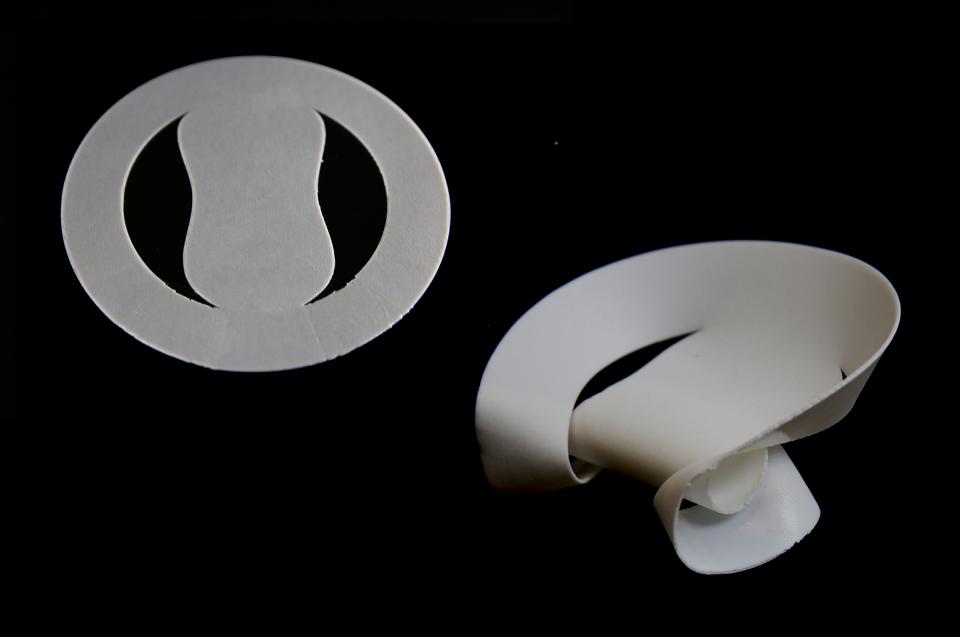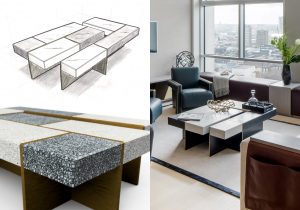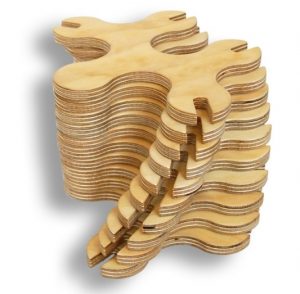A project at Carnegie Mellon’s Morphing Matter Lab could potentially create furniture that assembles itself.
Professor Lining Yao is taking advantage of what previously has been seen as a defect in desktop fused deposition modeling 3D printers. In some situations with those kinds of printers, natural warpage occurs as the material is heated and cools. Yao and her team are turning that problem into a feature in designs that can be printed flat but transform themselves when subjected to heat such as hot water or hot air.
 Four Self-folding artifacts: boat, chair, rose flower and Stanford bunny.
Four Self-folding artifacts: boat, chair, rose flower and Stanford bunny.“These self-folding plastic objects represent a first step toward products such as flat-pack furniture that assume their final shapes with the help of a heat gun,” said Yao. “Emergency shelters also might be shipped flat and fold into shape under the warmth of the sun.”
So far, Yao and her team at Morphing Matter Lab, Human-Computer Interaction Institute, School of Computer Science, Carnegie Mellon University, have developed small prototypes of objects such as a rose, a chair, a boat, and a bunny that look a little like projects in the Japanese paper-folding art of origami. But these originally flat-printed objects take their final shapes almost by magic with the application of heat. Of course, the real magic is in the programming.
 Finite Element Analysis of the self-folding rose, conducted by Xiaoxiao Zhang and Prof. Teng Zhang.
Finite Element Analysis of the self-folding rose, conducted by Xiaoxiao Zhang and Prof. Teng Zhang.“Though we used a 3D printer with standard hardware, we replaced the machine’s open source software with their own code that automatically calculates the print speed and patterns necessary to achieve particular folding angles,” she explained. “The software is based on new curve-folding theory representing banding motions of curved area. The software based on this theory can compile any arbitrary 3-D mesh shape to an associated thermoplastic sheet in a few seconds without human intervention.”
 The inverse design pipeline of the self-folding Stanford bunny.
The inverse design pipeline of the self-folding Stanford bunny.Dubbed “Thermorph,” the processed is believed to be scalable to much larger objects such as full-size furniture. It could even be used for boat hulls or emergency shelters that could be shipped flat and would assemble themselves when exposed to sunlight.
 Programmable and 4D printed self-folding boat triggered by heat. In the future the boat can be triggered by direct sunlight.
Programmable and 4D printed self-folding boat triggered by heat. In the future the boat can be triggered by direct sunlight.There are even ideas to use the process for food. Yao and her team are developing noodles that can be created flat, but when you cook them, they will transform into their final shape. That could save expense, space, and waste in packaging.
Source : https://www.woodworkingnetwork.com/technology/furniture-assembles-itself





